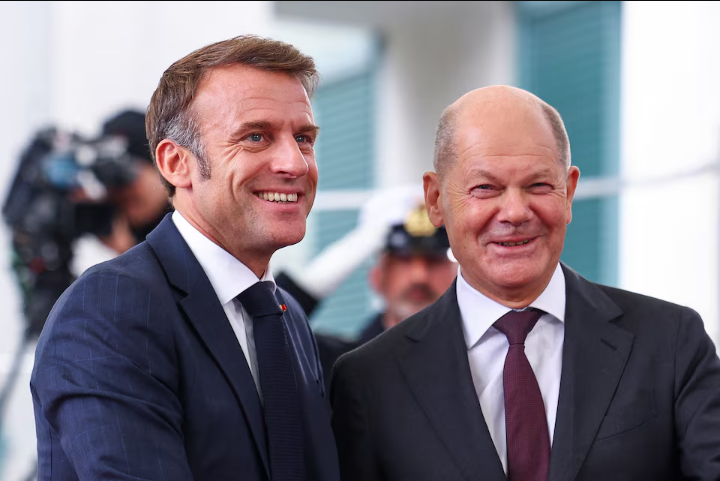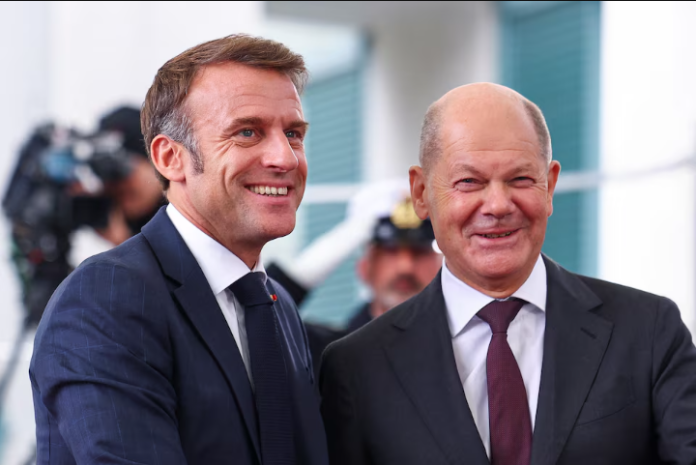French President Emmanuel Macron and German Chancellor Olaf Scholz met in Paris on Wednesday to tackle pressing economic and geopolitical issues, including the looming threat of U.S. tariffs.
The meeting came at a critical time for both leaders, with Europe struggling to present a united front against trade tensions initiated by U.S. President Donald Trump.
Trump’s Tariff Threats Spark EU Concerns
Trump, who has imposed tariffs on nations like Canada, Mexico, and China, has now turned his attention to Europe, criticizing the EU for its trade surpluses with the United States.
“The European Union is very, very bad to us,” Trump stated during a press briefing at the White House on Tuesday. “So they’re going to be in for tariffs. It’s the only way … you’re going to get fairness.”
This rhetoric has raised alarms in Europe, where many countries rely heavily on exports to sustain their economies. Already grappling with higher energy costs due to the ongoing war in Ukraine and slowing trade with China, the EU faces a potential economic blow if tariffs are implemented.
Divided Response Within the EU
Despite the urgency, EU nations remain divided on how to respond to the threats. French government spokeswoman Sophie Primas emphasized the need for a strong stance, stating, “Relations with President Trump are transactional. We must be as determined as the U.S., we must show our strength.”
However, while Germany advocates for a free trade agreement to ease tensions, France insists that the EU should resist economic coercion and retaliate with counter-tariffs if necessary.
Political Challenges for Macron and Scholz

Both Macron and Scholz are facing political turbulence at home, adding another layer of complexity to their negotiations. Macron, who lost snap elections last year and has gone through four prime ministers in 2024 alone, is struggling to maintain stability in France. Meanwhile, Scholz is trailing behind his conservative rival in the polls ahead of next month’s German elections.
This political fragility has slowed Franco-German decision-making, creating a leadership vacuum within the EU. A French government insider highlighted the stakes, stating, “Franco-German relations must warm up very strongly and very quickly. Europe won’t be relaunched without a strong Franco-German couple.”
The Path Forward
Despite their differences, Macron and Scholz found common ground on the need to reduce bureaucracy and boost European competitiveness. These priorities were at the center of their working lunch at the Elysee Palace.
As Europe braces for potential economic challenges, the leaders’ ability to reconcile their visions and present a united front will be crucial in navigating these turbulent times. While Macron and Scholz may have differing strategies, their cooperation will determine whether the EU can withstand external pressures and reinforce its global standing.



